The 1st Annual ACDM Symposium on Artificial Intelligence & Machine Learning in Clinical Trials
Hilton Paddington, London, UK
This symposium will bring together pharma, CRO and technology companies to discuss the different types of AI/ML, the applications of these, and also look at practical examples of these techniques being currently utilised in clinical trials. The day will consist of presentations, panel discussions, practical demonstrations, and the chance to network with peers from the sector.
Symposium Programme
Registration, coffee & networking
Join IQVIA for a demonstration session

The Landscape of AI & ML in clinical trials
To open what is sure to be an exciting and thought-provoking symposium this first session will introduce the world of Artificial Intelligence (AI) and machine learning (ML); what they are and how they are being applied within the industry and beyond. This session will provide attendees with a high-level understanding of the fundamentals of machine learning, paving the way for an interactive day of learning, insights, and valuable discussion.
Presented by:
 |
Jennifer Bradford Director of Data Science, Phastar Click to view biography
I am Director of Data Science for the global CRO PHASTAR working closely with our data operations team and external clients to lead the delivery of innovative data science solutions. Previously I worked for the Advanced Analytics Group at AstraZeneca, leading the development of the REACT clinical trial monitoring tool, which I went on to deliver to other sponsors as part of Cancer Research UK (CRUK). Within CRUK and in close collaboration with the Christie hospital I worked on electronic data capture, app development and wearables data analytics in the context of clinical trials. I have a degree in Biomedical Sciences from Keele University and a bioinformatics Masters and PhD from Leeds University. I first joined ACDM during the 2019 conference and was excited to join the eDigital expert group given the relevance of the topics to my own interests and work at PHASTAR. |
 |
Marcus Schwabedissen Chief Operating Officer, Senior Executive Consultant, QFINITY Click to view biography
Marcus has been in the life science industry for more than 20 years, and spent most of that time in IT, Computerised System Validation, Risk Management, Quality Management and Quality Assurance. Over the last 25 years he was in charge of different leadership positions, which included Head of Global Technology Quality Management and Head of the QA Computer Technology Auditing Group at PAREXEL. Marcus has a proven history of getting to the heart of matters impacting Quality or Information Security, with clear insight into gaps, threats and remediation solutions. Adept at leading worldwide programs and projects to deploy frameworks, systems, and controls that transform how companies handle risk prevention and mitigation. Recognized for driving continuous improvement at all levels, with a key focus on transformation in project management and systems controls including computerized system validation. In October 2017, Marcus joined Q-FINITY, a consulting company for risk-based Quality Management, Quality Assurance, GxP-Compliance and Continuous Improvement of Processes, Data and Computerized System Validation. As Chief Operation Officer he now takes care of the operational belongings of Q-FINITY, but still regularly acts as advisor, consultant, trainer and auditor on all kinds of client projects. |
Overcoming challenges using AI & ML
Validation
Presented by:
 |
Oliver Herrmann CEO & Senior Consultant, and Co-Lead of ISPE GAMP DACH Steering Committee, QFINITY Click to view biography
Oliver has a degree in computer science with focus on business process/workflow management systems. He now has 20 years of extensive consulting, auditing and project experience in the life science industry. Oliver is co-lead of the ISPE GAMP D-A-CH Forum, member of the ISPE GAMP Global & EU Steering Committee, the ISPE PHARMA 4.0 Advisory Board and the RQA IT Committee. In the context of the current GAMP 5 2nd Edition revision, he was a member of the Core Team. Oliver is also an ISACA CDPSE Certified Data Privacy Solutions Engineer, Certified SAFe Agile Practitioner, Microsoft Certified Systems Engineer (MCSE). |
Technical Challenges: From Raw Data to Machine Learning Results – a practical example
Presented by:
 |
Nicolas Huet Machine Learning Manager, CluePoints Click to view biography
After finishing a PhD in atomic physics, Nicolas pursued his career in the field of machine learning. He worked several years in the data analytics team of a consulting company before joining CluePoints end of 2018 to integrate the research team. He’s now leading the machine learning team which is in charge of developing new machine learning solutions. |
12:00-12:45 – Lunch
Navigating the regulatory and ethical aspects of AI & ML within the industry
Regulatory aspects
This presentation will look at the regulatory hurdles and considerations for the use of AI & ML in Clinical Trials
Presented by:
 |
Ib Alstrup Medicines Inspector GxP IT, Danish Medicines Agency Click to view biography
Ib Alstrup is a Medicines Inspector, GxP IT, with the Danish Medicines Agency. As an electronic engineer, he has many years of experience in software design, test and quality assurance from within and outside the pharmaceutical industry. He joined the agency in 2017 and leads their work of inspecting industry’s use of IT systems across all GxP areas, focusing on the integrity and trustworthiness of systems and data including the validation and safe operation of systems; and lately, the use of AI/ML in critical applications, for which he has proposed a set of questions. He is a member of a long list of drafting groups writing guidelines for industry within the different GxP areas at a national, EMA and PICS level, e.g. the PICS DI Guideline, the draft EMA Guideline on Computerised Systems in GCP and the revision of the EMA/PICS GMP Annex 11, which he is chairing. |
Ethical aspects
The call for digital ethics is growing. After all, not everything that can technologically be implemented, is or should be legally regulated. This is why companies are repeatedly faced with groundbreaking ethical issues in digitization projects. In 2018, in a survey of Executives, 43% of respondents said they had faced ethical dilemmas at least once when making decisions regarding the use of new digital technologies. At the same time, only about 15% of Executives feel able to make informed and balanced decisions in such situations.
AI & ML play a sensitive role in the debate around digital ethics. Outcomes of neural networks are not explainable. This raises major concerns and questions of liability – especially in healthcare contexts.
In this session, we explore current trends, regulations and best practices towards the operationalization of digital ethics in healthcare organizations.
Presented by:
 |
Isabelle Schlegel Senior Consultant, Institute for Digital Transformation in Healthcare GmbH Click to view biography
Isabelle is Senior Consultant at the Institute for Digital Transformation in Healthcare (idigiT) at the University of Witten/ Herdecke, which advocates for a human-centered digitalization. |
Q&A Panel with speakers from this session
14:15 – 14:30 – Coffee
Case Study 1: Pfizer and Saama – Using AI to support lightspeed data review in a COVID-19 vaccine trial
 |
Ashley Howard Director, Senior Asset Lead, Pfizer Click to view biography
An experienced data manager leader Ashley has worked across therapeutic area disciplines within both the pharmaceutical and CRO industries. With over 11 years’ experience in Clinical Data Management Ashley started his career in the late phase Data Management department at PAREXEL. He progressed into a Data Management operational leadership position where he had overall accountability, as an account lead, for the execution of the Data Management strategy on numerous complex Oncology studies.Ashley joined the Oncology team within the Data Monitoring and Management department at Pfizer in 2018 and is currently an asset lead supporting the development of a number of key, pivotal compounds. Ashley is a business lead for Pfizer’s development and implementation of the Smart Data Query (SDQ) tool, an industry first leveraging AI/ML to hyper-accelerate complex data review and reconciliation activities. Ashley holds a Bachelor of Science degree in Biology from Sheffield Hallam University, UK. |
 |
Mike Collinson Senior Director of Sales Engineering, Saama Click to view biography
Mike specializes in the implementation of AI-enabled clinical trial software. Mike has extensive experience in AI, analytics and data warehouse implementations in Pharma R&D, and is the co-chair of the CDISC UK Network. |
Case Study 2: Machine Learning Approach for Recruitment Prediction in Clinical Trial Design
The aim of this presentation is to demonstrate the value of a data-driven machine learning (ML) approach to improve clinical trial enrollment prediction, while accounting for variations in trial site initiation times, seasonality, and other trial characteristics.
Presented by:
 |
Andy Armitage Solution Sales Specialist for AI, Medidata Acorn AI / EMEA Click to view biography
20 + years experience in Life Science Industry (Abbott, BMS, SCIO Health Analytics, Clinigen HealthCare) |
Q&A with all speakers
Interactive Panel
All speakers and audience Q&A and voting on subjects from the day. Questions to include “what is needed next”
Join Saama for a demonstration session



